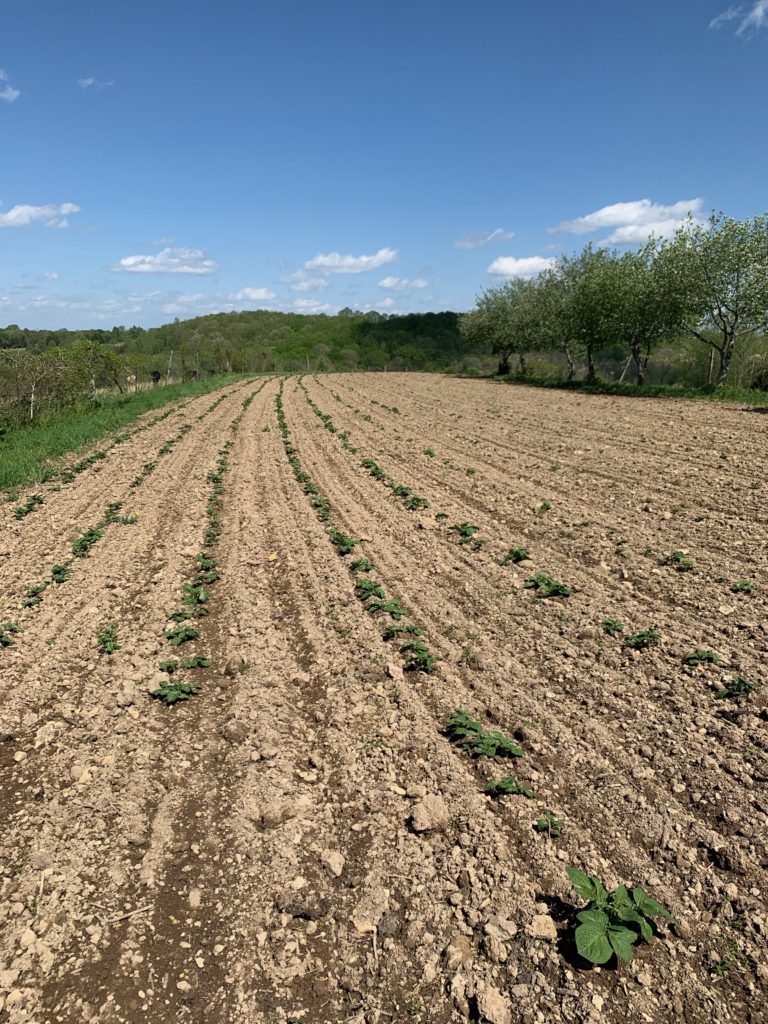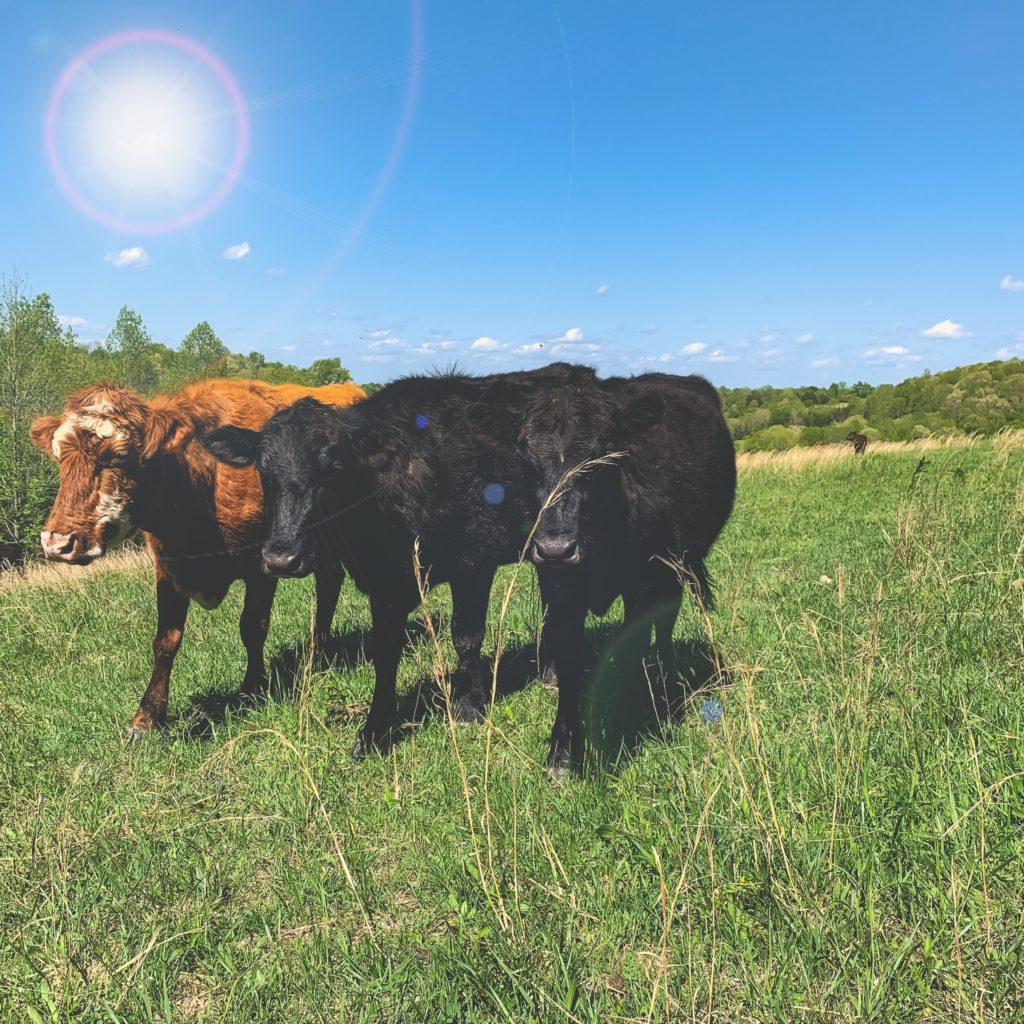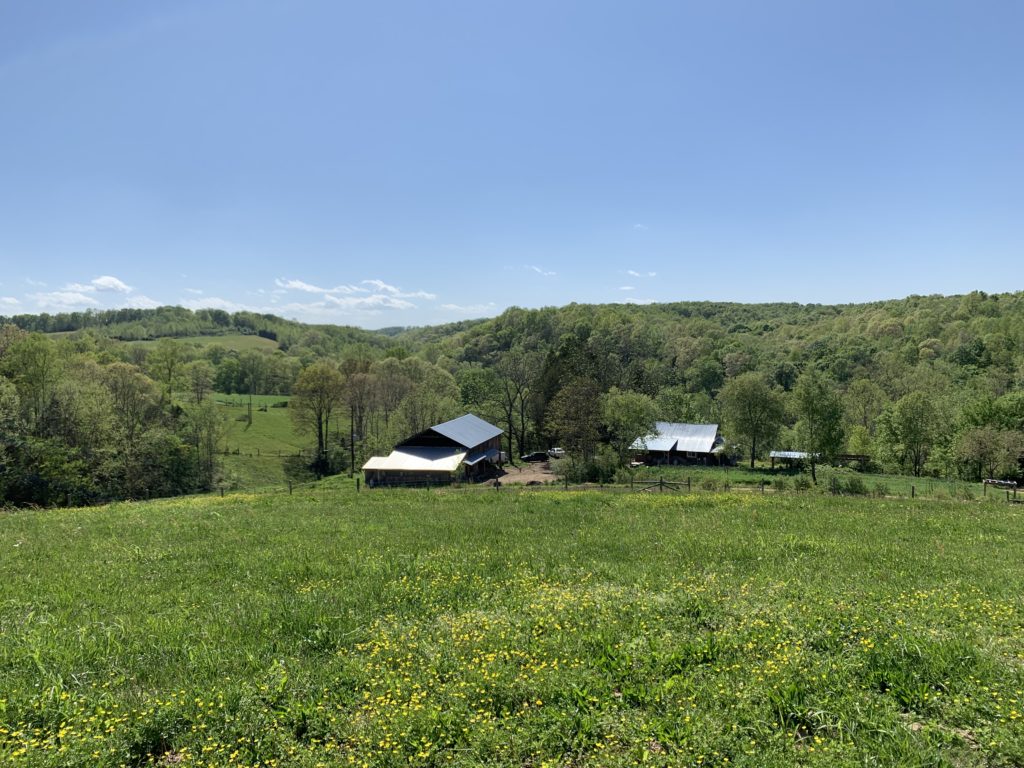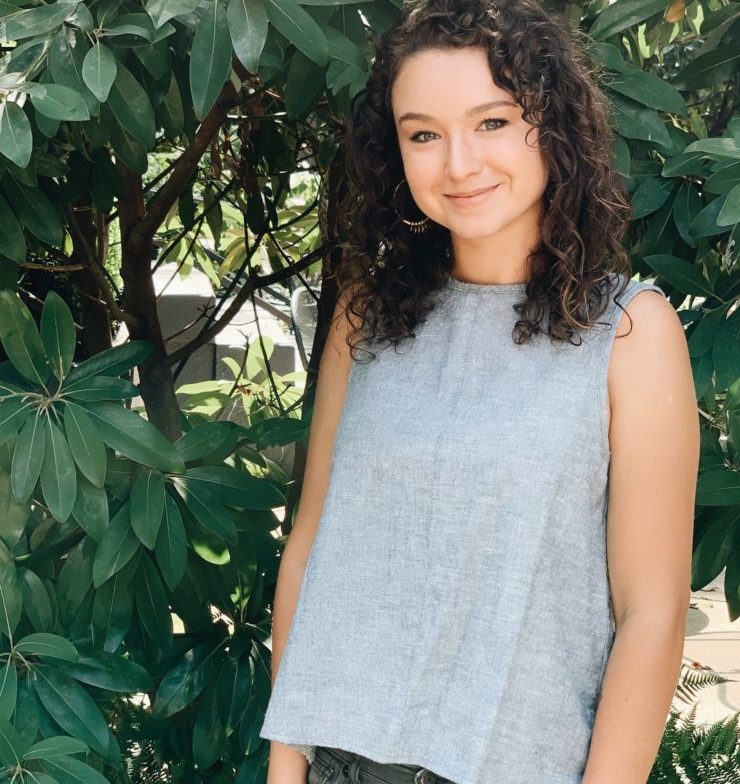Jeff Poppen is wise, humble and unwavering like a sturdy oak, with a cadence as easy as the rolling hills around him. He has the calm and gentle demeanor of a teacher, yet a surprising electric humor flows through him like the refreshing creek he sometimes skinny dips in. He wears tie dyes and flannels, tufts of hair stick out of his sun worn baseball hats, his tummy-grazing beard sways in the wind, and yes, he really is barefoot all the time.
Long Hungry Creek Farm, about an hour and a half outside of Nashville is one of the oldest and largest organic Farms in Tennessee. Home to cows, flowers, vegetables, fruit trees, a brand new barn, a dining hall, working 60 year old tractors, an entire field just to host private hippie music festivals, an acoustic stage, and the farmer himself. It’s Tennessee’s not-so-hidden gem, as Jeff Poppen is quite famous around these parts.
He has written two books, contributed 25 years to a gardening column for The Macon County Chronicle and has appeared on Volunteer Gardener, a Nashville PBS television show for over 20 years. All the while, continuing to produce acres upon acres of organic food for his CSA and teaching newbies from all over how to get their hands dirty. Yet the most interesting thing about him isn’t the laundry list of truly amazing accomplishments, but the way he speaks to people. Which is ironic, considering he told us right off the bat that human interaction is not what farmers do best.

As it’s early spring, Jeff undoubtedly had a full day’s work to do but selflessly gave us a four hour grand tour of the grounds, several unforgettable history lessons, introduced us to his interns, and generously offered lunch, dinner and tea.
The first stop on the tour was a field being prepped for planting. We piled out of his dusty pick up truck. He swung open the big metal gate and took a few strides in before plucking a plant out of the ground and shaking out the roots. “What do you know about nitrogen?” he asked. I shrugged and sheepishly admitted not much. “Well it’s 78% of the atmosphere,” he explained. It’s vital for chlorophyll (the green pigment in plants) enabling them to perform photosynthesis, the process by which plants turn sunlight into sugar and carbon dioxide. It’s also one of the major components of amino acids, the proteins plants need to survive. The balance is delicate, but the right amount of nitrogen in soil can transform the crop. Nitrogen gets depleted as organic matter decomposes. To fix this, non-organic farmers put down nitrogen-dense fertilizer. Instead, Jeff puts down composted manure and grows nitrogen-fixing plants, like peas. They both naturally add nitrogen back into the soil. He held out the long scraggly dirt-laden roots of the pea shoots to us and pointed out a white popcorn looking structure bubbled up on the end, “see that? That’s nitrogen. Also, try some leaves. They’re just pea shoots. It’s good.”
With Jeff, there are no stupid questions or stupid answers. He nods along encouragingly and provides all of the information he can. He has an unending wealth of fascinating facts.
How and why did farmers start cutting corners with manmade fertilizers and why is it completely illogical? “Nitrogen is everywhere!” he laughed and pointed at the sky, “but they still found a way to sell it to us!” Let Jeff enlighten you: It began all the way back in World War II when a German scientist figured out how to turn nitrogen into ammonia for munitions. Factories exploded everywhere (no pun intended) and began producing a crazy amount of nitrogen-rich ammonia. When the war was over they needed to do something with the hundreds of thousands of tons they made, so they sold it to farmers to ‘improve’ their crops. With this ‘new’ fertilizer farmers didn’t have to do as much work and their yield seemed to be just fine. But there’s always a consequence to cheating mother nature. Unnaturally enriched soil makes it more difficult for plants to photosynthesize the sunlight into sugars, making the produce taste bitterer. When plants aren’t sweet, the bugs will eat them, creating a cycle where pesticides needed to be sprayed on everything. Eventually ‘organic’ became a bad word, meaning dirty vegetables, full of bugs.
The entire time Jeff is explaining all of this, it doesn’t sound rehearsed or tired. He has an abundance of energy and a twinkle in his eye. This is his life, his passion, his happy place. He’s brimming with knowledge.
We pile back in his pick up truck and continue onto the next site. He walks us through some fruit trees. All the while I’m just scared he’s going to step on something thorny or sharp. We visit the cows. They were shy at first, but ultimately very curious. I ended up crouched down in the grass talking to them while they gathered around me, each of us staring into the other’s eyes.

Back in the truck again, Jeff is discussing his daily garden and farm consults. I wonder aloud how he tests the soil in new places. How does he know what it needs? “Oh well, I look at it, smell it, taste it and sometimes I listen to it,” he mimes rubbing some soil through his fingers next to his ear. This is why he is the most coveted resource of new farmers in the area, the reason he’s spoken at large conferences year after year; he is so deliriously in tune with the Earth.
You would think with so much knowledge he must have an uppity attitude. But he’s humble enough to admit in a harsh whisper, “the farmer doesn’t do anything! Nature grows all of this stuff- I mean the sun and the rain- all we do is piddle around. The real work is working with nature and letting her do her thing.” All of these harmful fertilizers and additives are unnatural and unnecessary. If every farmer in America thought like Jeff and grew like Jeff, they’d save money, recover nutrients, and grow sweeter and healthier food. Organic is not just a silly buzz word to throw around, it’s a true lifestyle, its own culture.
After passing by the small festival grounds where people gather for a few days to listen to Grateful Dead cover bands, eat pizza and sell crystals, we drive in the water, through the creek and back to his cabin. Just when the adventure feels like it’s coming to an end he drives past his house and up another hill. We roll by the new freshly built barn and the lazy farm dog to a beautiful overlook. There are no clouds. The sky is a perfect sunny blue. His cabin sits in the valley below us. The lush hills we just walked through are laid out before us.
“So… this is the farm,” he sighs.

Check out his CSA here: http://barefootfarmer.com/csa/. Find a CSA program near you on Love Local.
Or
To contact him about coming to your garden or farm to help you get started, check out their page: https://www.lovelocal.com/listing/long-hungry-creek-farm/


